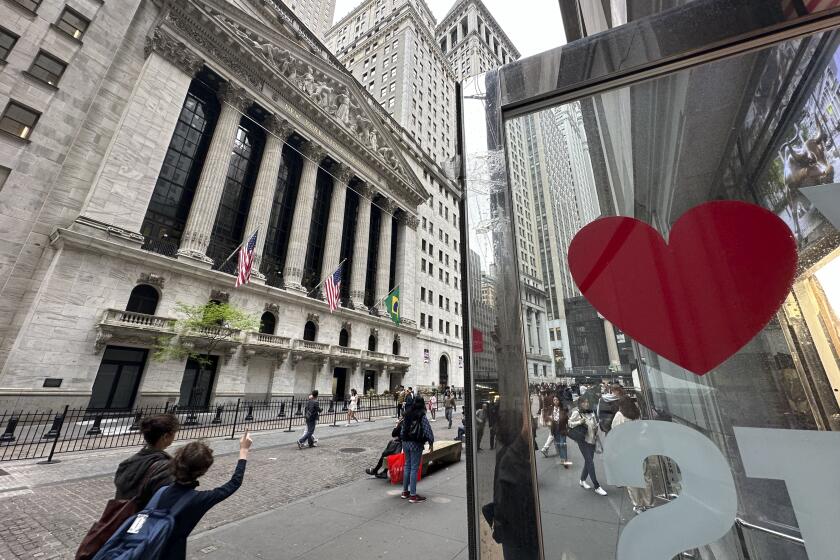OUTLOOK ’87 : San Diego Is a Great Location for Risk Takers
By now you have read a surplus of disinformation, biased whining and all too much doom and gloom for the entrepreneur in 1987 and beyond.
The sources range from investors who feel that the tax law is unfair to entrepreneurs who cannot get the unrealistic financing that prevailed from 1980 to 1983. I suspect some of it also comes from reporters who “need a story.”
The reality is that the tax law is of minor significance, the ill-conceived venture capital excesses of the early 1980s could not be sustained and the creation of a successful business is so complex and multifaceted that few people can intelligently address the subject.
A dynamic, hungry entrepreneur shouldn’t be concerned about taxes, world politics or Wall Street fads. He needs: (1) a market niche that he can capitalize on, (2) an ability to work hard and (3) some financing, in that order of importance.
Successful entrepreneurs are usually narrowly focused. They should stop reading about economics, taxes, etc. and concentrate on finding a profitable niche market.
Our venture capital firm has never financed a tax accountant, an economist or a reporter. We have financed visionaries, workaholics and a few fanatics.
Equity money to start a business or expand it can come from many sources: personal savings, friends and relatives, local small investors, institutional venture capitalists and established companies. All of these “venture capitalists” have one thing in common--they want to make “a killing.”
If the return appears to be 5, 10 or 50 times on their money, the change in the capital gains tax is insignificant. Thus, money will continue to be available for “hot deals.”
The new tax law will increase the number of “S” corporations. (An “S” corporation is treated by the IRS like a partnership--profits and losses flow through to the investor, eliminating double taxation.) The tax savings are significant enough to make it worth investigating. Because there are restrictions on “S” corporations (e.g., maximum 35 investors), it is ideal for an early-stage company.
Unfortunately, the State of California does not recognize “S” corporations--one of only 14 states that doesn’t. This is not catastrophic, but it does put California at a disadvantage. (Gov. George Deukmejian, please take note.)
The other tax law changes affecting depreciation, investment tax credits, etc., are of minor importance to an early-stage firm.
There is a substantial amount of risk money available. The number of people with big money and little entrepreneurial ability outnumber those with the ability at least 10 to 1.
Venture capital is available for companies that can reasonably project high returns on equity. Technology-based companies still attract a major share of this money, but a trend toward non-technology venture investing is under way.
Greed is more pervasive than a desire to be associated with a glamorous technology. Obviously, the combination is the ultimate.
Successful companies today are almost always “marketing based.” This trend has important implications for technology start-ups. It means that even a proven new device does not guarantee a successful company. Therefore, we will see more “strategic alliances” (a joint venture between an established marketer and the producer of the new product) and mergers.
The IPO (initial public offering) market in recent years has not rewarded investors adequately, in part because of the fierce marketing competition that these young companies often encounter. I predict a very selective IPO market for the rest of the 1980s.
These events tend to extend the time before investors and management can “cash out” on the new company. We will all need to adjust to 5- or 10-year investment periods from the get-rich-quick days of the late ‘70s and early ‘80s. Venture capitalists will have to provide more of the cash for a longer period of time.
San Diego is a venture capitalist’s dream. A vibrant technology industry and an outstanding academic community are coupled with a fast-growing general economy. The large number of vacant industrial buildings makes owners eager to rent to anyone--even shaky start-ups.
To entrepreneurs, the atmosphere in San Diego is one of encouragement. A risk taker is respected as much as or more than a corporate employee.
In addition, San Diego’s beaches are a great place to enjoy life while the entrepreneurs make you rich.
Although there are not many of us based in San Diego, most venture capitalists have invested in at least one San Diego company.
If you have a good idea and lots of persistence, there are risk takers to be found who will supply cash for a “piece of the action” and maybe a pound of flesh.
You might even find one of us at Windansea Beach. Just look for the guy reading the business section of The Times.






